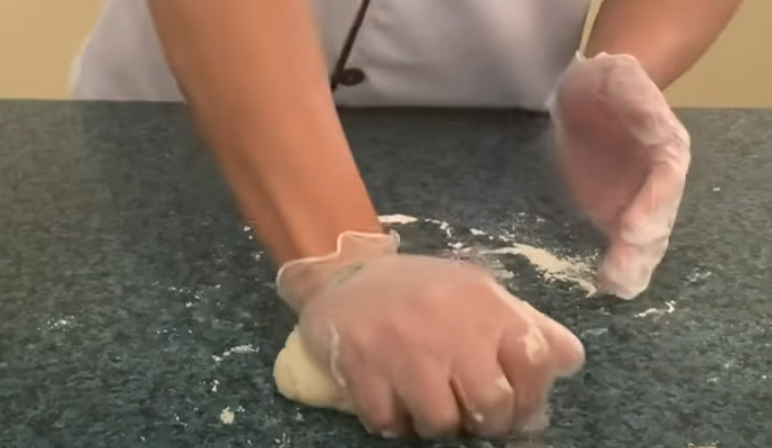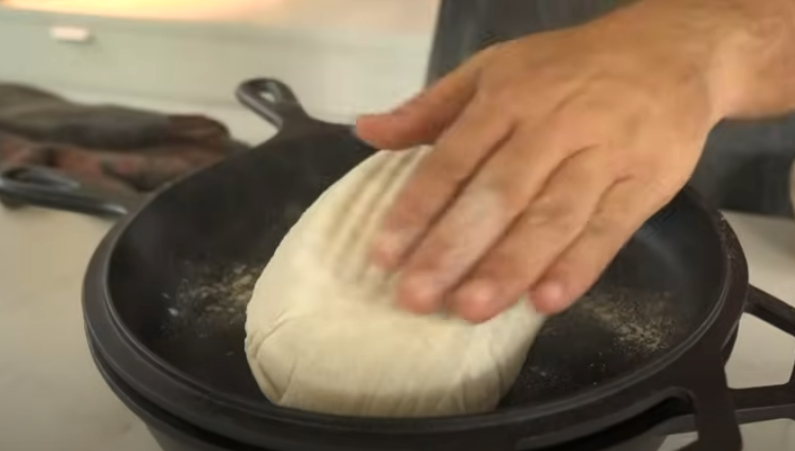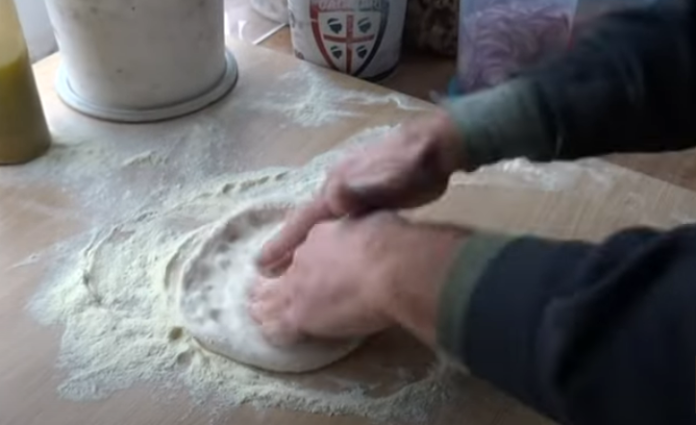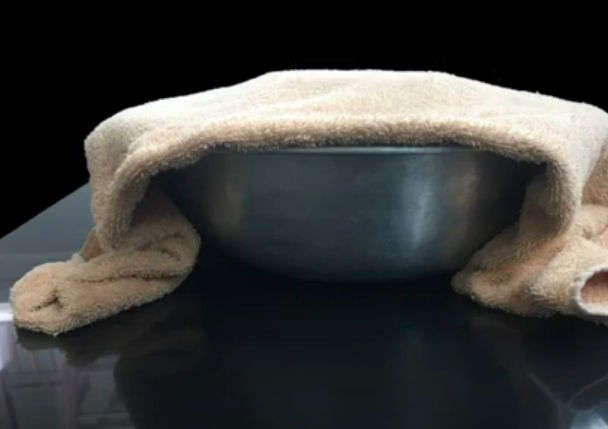How to Stop Pizza Dough from Shrinking: Let the dough rest before topping it. Knead gently.
Getting your pizza dough just right is crucial for a perfect pizza. One common issue many face is dough shrinking during baking, causing a thick crust or misshapen pizza. Understanding how to prevent this shrinkage can make all the difference in your homemade pizza experience.
By taking simple steps while preparing and handling your dough, you can ensure that it stays the right size and shape throughout the baking process. Let’s explore some effective techniques to stop pizza dough from shrinking, allowing you to achieve that ideal, crispy, and flavorful pizza crust every time.
Understanding Pizza Dough Shrinkage
How to Stop Pizza Dough from Shrinking is a common issue that many home cooks and professional chefs encounter when making pizzas. It can be frustrating to see your perfectly shaped pizza dough shrink in the oven, leading to a smaller and less appetizing final product. To prevent this shrinkage, it’s essential to understand the causes and effects of pizza dough shrinkage.
The Source: Why is My Pizza Dough Shrinking
Causes Of Pizza Dough Shrinkage
- Overworking the Dough
- Too Much Gluten Development
- Incorrect Proofing Time
- Insufficient Resting Time After Shaping
Effects Of Pizza Dough Shrinkage
- Smaller Pizza Size
- Thicker Crust Than Desired
- Uneven Toppings Distribution
Preparing The Dough Properly

To prevent pizza dough from shrinking, make sure to properly prepare the dough. Start by allowing the dough to rest after shaping to help it relax and prevent shrinking during baking. Additionally, be gentle when stretching the dough to avoid overworking it, which can cause it to shrink in the oven.
Welcome to this essential guide on how to prevent pizza dough from shrinking. Properly preparing the dough is key to achieving the perfect pizza crust. Here are some crucial steps to follow to ensure your pizza dough stays the right size and shape throughout the baking process.
Choosing the Right Flour
Select high-quality all-purpose flour for the best dough consistency.
Opt for a strong bread flour if you prefer a chewier crust.
Measuring Ingredients Accurately
Use a kitchen scale for precise measurements of flour and water.
Follow the recipe guidelines for exact ingredient proportions.
Mixing and Kneading Techniques
Combine ingredients thoroughly, but avoid overmixing to prevent toughness.
Employ the stretch-and-fold method for optimal gluten development.
Proper preparation of pizza dough is essential for stopping it from shrinking during baking. Choose the right flour, measure accurately, and employ proper mixing and kneading techniques.
Importance Of Resting The Dough
Resting the pizza dough is a crucial step that should not be skipped. When you first mix the ingredients, the gluten in the flour starts to develop. However, it needs time to relax and become more elastic. Resting the dough allows the gluten strands to align properly, resulting in a stretchy and pliable dough.
During the resting period, the dough also has a chance to ferment slightly. This fermentation process helps develop the flavor of the pizza crust, giving it that distinct taste we crave. It also helps to activate the natural yeast present in the dough, which contributes to a better rise during proofing.
So, how long should you rest the dough? Ideally, it should rest for at least 1 to 2 hours at room temperature. This gives the gluten ample time to relax and the yeast time to do its magic. If you’re short on time, you can even refrigerate the dough overnight, which will result in a more developed flavor and texture.
Proper Proofing Techniques
Proofing is the second crucial step in ensuring your pizza dough doesn’t shrink during baking. Proper proofing allows the dough to rise and develop air pockets, resulting in a light and fluffy crust. Here are a few things to consider:
- First, make sure your dough is in a warm environment. Yeast thrives in warmth, so find a cozy spot in your kitchen where the dough can rise undisturbed.
- Cover the dough with a clean kitchen towel or plastic wrap to create a warm and humid environment. This helps prevent the dough from drying out and forming a dry crust
- Allow the dough to proof until it has doubled in size. This typically takes around 1 to 2 hours, but the exact time may vary depending on the temperature of your kitchen and the yeast activity.
- Be patient and resist the urge to rush the proofing process. An adequately proofed dough ensures a great rise and prevents shrinkage in the oven.
Following these proper proofing techniques will help you achieve a beautifully risen pizza dough that retains its shape and does not shrink during baking.
Optimizing Baking Conditions
Using The Right Oven Temperature
Preheat your oven to a high temperature, ideally around 475–500°F. High heat ensures that the crust sets quickly, allowing it to hold its shape without shrinking excessively. This creates a crispy, golden crust with a delicious, chewy texture.
Using A Pizza Stone Or Steel
A pizza stone or piece of steel can help distribute heat evenly to the dough, reducing the likelihood of it shrinking. Place the stone or steel in the oven as it preheats. When you transfer the pizza onto the hot surface, it helps sear the dough and maintain its shape during the baking process.
Baking On A Preheated Surface
Always preheat your baking surface, whether it’s a baking sheet, pizza stone, or steel. This ensures that the dough is exposed to immediate heat, which can prevent shrinkage. A hot surface promotes rapid heat transfer, allowing the dough to begin cooking immediately, effectively limiting shrinkage.
Avoiding Common Mistakes
Pizza dough that shrinks during baking can be frustrating. However, by being aware of common mistakes, you can prevent this issue and enjoy a perfectly sized pizza crust. Here are some key mistakes to watch out for:
Overworking The Dough
Overworking the pizza dough can lead to gluten development, resulting in a tough and elastic texture. Keep kneading to a minimum to maintain a tender and airy crust.
Using Too Much Yeast Or Water
Excessive yeast or water can cause the dough to rise too quickly and then collapse, leading to shrinkage during baking. It is crucial to measure ingredients accurately to ensure the perfect balance for optimum dough structure.
Skipping The Resting Period
Skipping the resting period can prevent the dough from relaxing and developing its gluten structure, leading to shrinkage during baking. Allow the dough to rest as per the recipe’s instructions to achieve the best results.
Alternative Dough Recipes

The process of making pizza dough can sometimes be tricky, especially when it comes to preventing it from shrinking during the baking process. However, there are alternative dough recipes that you can try to ensure your pizza dough turns out perfectly every time. In this article, we will explore gluten-free options and the benefits of trying different types of flour.
Exploring Gluten-free Options
For those with gluten sensitivities or dietary restrictions, exploring gluten-free options for your pizza dough is a great alternative. Gluten is a protein found in wheat, barley, and rye, which can cause digestive issues for some individuals.
If you’re looking to create a gluten-free pizza dough, there are a few alternative flours you can use:
- Almond flour: This nutritious flour is made from ground almonds and provides a slightly sweet and nutty flavor to your dough.
- Coconut flour: Made from dried coconut meat, coconut flour is high in fiber and adds a hint of tropical taste to your pizza crust.
- Rice flour: Rice flour is a versatile gluten-free option that can be used on its own or in combination with other flour. It creates a light and crispy crust.
When using gluten-free flours, it’s important to note that the dough may have a different texture and require different handling techniques. It’s advisable to follow specific recipes that are specifically designed for gluten-free pizza dough.
Trying Different Types Of Flour
If you don’t have any restrictions due to gluten sensitivities, using various types of flour can give your pizza dough flavor and variety. Experimenting with alternatives can result in a unique crust that complements your toppings perfectly.
Here are a few types of flour you can try:
| All-Purpose Flour | Whole Wheat Flour | Bread Flour |
|---|---|---|
| Provides a balanced texture and flavor for your pizza dough. | Offers a heartier and nuttier taste while still providing beneficial nutrients. | Contains a high protein content, resulting in a chewier and more substantial crust. |
By trying different types of flour, you can customize your pizza dough to suit your personal preferences. Don’t be afraid to experiment and find the perfect combination that satisfies your taste buds.
Troubleshooting Dough Shrinkage
Identifying The Issue
- Check the dough consistency and fermentation time.
- Inspect the oven temperature and cooking time.
Making Adjustments
- Allow the dough to rest longer before stretching.
- Using high-gluten flour for a stronger dough structure.
- Increasing water content slightly increases elasticity.
- Lowering the oven temperature to prevent rapid shrinkage.
Mastering The Perfect Pizza Base
Creating the ideal pizza starts with a flawless base. Proper techniques and quality ingredients are key in preventing pizza dough from shrinking. By mastering the pizza base, you can achieve that perfect pizza every time.
Experiment With Ingredients
A variety of ingredients can make or break your pizza dough. Try different types of flour, and varying amounts of water, and consider the addition of olive oil or honey for enhanced flavor and texture.
Fine-tune The Technique
Technique plays a crucial role in preventing pizza dough from shrinking. Pay attention to kneading the dough properly, allowing it to rest, and ensuring it is stretched evenly on the pan or stone.
Frequently Asked Questions On How To Stop Pizza Dough From Shrinking
Why Does Pizza Dough Shrink During Baking?
Pizza dough shrinks due to gluten formation and gas release during baking.
What Are the Causes of Shrinking Pizza Dough?
Over-kneading, insufficient resting time, or improper shaping techniques can all result in shrinkage.
How Can I Prevent Pizza Dough From Shrinking?
To prevent shrinking, ensure proper resting time, gentle shaping, and docking the dough before baking.
Does the type of flour affect dough shrinkage?
Yes, using high-protein flour can lead to more gluten formation and potential dough shrinkage.
Can oven temperature affect pizza dough shrinkage?
Yes, higher temperatures can lead to rapid gas expansion and potential pizza dough shrinkage.
Conclusion
How to Stop Pizza Dough from Shrinking is essential for achieving that perfect, crispy crust. By following these tips and tricks, such as using the right amount of yeast and allowing for proper resting time and temperature control, you can ensure that your dough maintains its shape and size throughout the baking process.
With a little practice and attention to detail, you’ll soon be able to enjoy homemade pizzas with flawlessly cooked dough every time.


